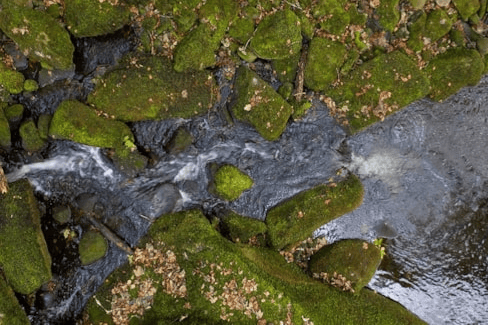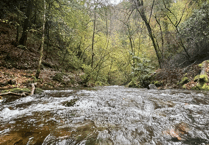SOUTH West Water is celebrating 15 years of its catchment management programme.
The programme has worked with more than 2,000 farms, across 144,120 hectares of land to reduce river pollution.
The project’s focus is on applying natural solutions to farmland and water sources to reduce the negative impact of farmland run off on biodiversity and water quality.
The multi-award winning project is delivered by environmental partners working to manage water quality while promoting resilient and thriving ecosystems for future generations.
When runoff from farms - including manure, artificial fertilisers, herbicides and pesticides - reaches water sources, the treatment required to meet drinking water standards becomes more intensive and expensive.
Upstream Thinking funds and supports farm advisors to work with farmers and landowners next to rivers and reservoirs to manage their land in a way that’s good for water quality.
First introduced by South West Water in 2010, Upstream Thinking utilises a variety of long-term solutions including soil testing, nutrient management, introduction of manure sheds, improving farm tracks, increasing slurry storage, and building ponds.
The scheme has overseen the planting of over 390,000 trees which play a vital role in enhancing water quality by acting as natural filters, reducing pesticide run-off into watercourses, preventing soil erosion, and slowing water flow.
The next phase of Upstream Thinking for 2025-30 now extends across the South West Water and Bournemouth areas and, for the first time, includes Bristol Water.
The delivery partners are Bristol Avon Rivers Trust, Farming and Wildlife Advisory Group South West, Catchment Sensitive Farming, Dorset Wildlife Trust, Cornwall Wildlife Trust, Devon Wildlife Trust, South West Peatland Partnership, Wessex Rivers Trust and West Country Rivers Trust.
Susan Davy, CEO of Pennon Group, said: ‘I am incredibly proud of what the Upstream Thinking programme has achieved over the past fifteen years.
‘It shows what’s possible when we look beyond simply treating water, and focus instead on protecting and improving it at its source.
‘When our raw water is cleaner, with less sediment, nutrients and pollutants means healthier rivers, thriving biodiversity and fewer environmental impacts.
‘What makes this programme so special is the way it brings people together.
‘Across more than 80% of our catchments, we’ve worked alongside brilliant partners - farmers, conservationists, scientists, universities and land managers, all with a shared goal of restoring nature and improving water quality.
‘From simple, effective local measures like fencing to stop cattle entering rivers, to the large-scale restoration of thousands of hectares of moorland that helps prevent flooding and naturally purifies water, the results speak for themselves.
‘It is a pioneering blueprint for how water companies can work in true partnership with others and make a real, lasting difference for our environment’.





Comments
This article has no comments yet. Be the first to leave a comment.